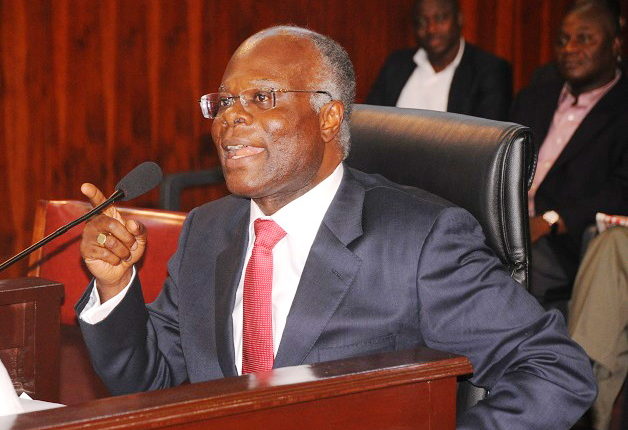Import restriction bill: Gov’t only seeking to restrict strategic imports – Trade Minister clarifies
Trade and Industry Minister K.T. Hammond has clarified that the government is not seeking to place a total ban on importing some 22 products.
However, he said the government wants to check the importation level to boost local production and reduce the country’s skyrocketing import bill.
The Minority in Parliament has kicked against the Legislative Instrument(L.I.) for the second time.
They have called on President Akufo-Addo to immediately withdraw the L.I., seeking to restrict the importation of rice, fruit juice, margarine, cement, fish, sugar and 16 other strategic products.
The caucus says restricting importation will fuel inflation and worsen hardship as there are no ready substitutes.
The Minority has also indicated that the World Trade Organisation (WTO) frowns on such a policy because it violates its practices.
It also expressed worry that traders might not get the license to import products if they do not have ties with the New Patriotic Party(NPP) when that power is granted to the minister.
But the trade minister says he sees no link between granting permission to individuals to import certain products and corruption.
In an interview on Monday, November 27, the minister addressed stakeholders’ fears that there would be inflation and a high cost of living if imports were restricted as local production may not meet consumption demand.
The Adansi Asokwa MP said there was no cause for alarm.
He expressed concern that in 2021 and 2022, Ghana spent 12 and 13 billion dollars, respectively, on various imported products, placing excessive pressure on the local currency.
He emphasized that it is a restriction, not a ban. We are not banning anything. Indeed, we cannot even do that.
He said, “We are constrained by the World Trade Organisation rules not to venture into any of those things. You cannot place restrictions under those regulations which will make it difficult for other countries”.
According to him, what the government is seeking to do is allowed by the WTO once the move is geared towards boosting the country’s foreign exchange reserve, which is the reason for Ghana’s case.
Asked whether Ghana had notified the WTO about this action, the Trade Minister said, “We are taking them in stages. We are consistently making the point that we are not banning anything. We are mandated by the rules to conserve our reserves. The WTO would ultimately be informed about the processes we have put in place. We are not banning anything, we are saying that we are restricting by a certain procedure.”
The minister explained that there would not be a time when the country would suffer dire consequences since it’s a restriction and not a total ban.
According to him, when local production fails to meet demand, there is that flexibility to allow the necessary imports to fill in the gap.
“We are restricting to the extent that we don’t create famine in the country,” he said on Joy News.
On Monday, November 27, a Joint Business Consultative Forum petitioned Parliament to reject the bill, arguing that the bill would have detrimental effects on their businesses if enacted.
The businesses comprised associations such as the Ghana Union of Traders Associations (GUTA), Food and Beverages Association of Ghana (FABAG), Importers and Exporters Association of Ghana, Ghana Institute of Freight Forwarders (GIFF), Chamber of Automobile Dealership Ghana (CADEG), and Ghana National Chamber of Commerce and Industry (GNCCI).



